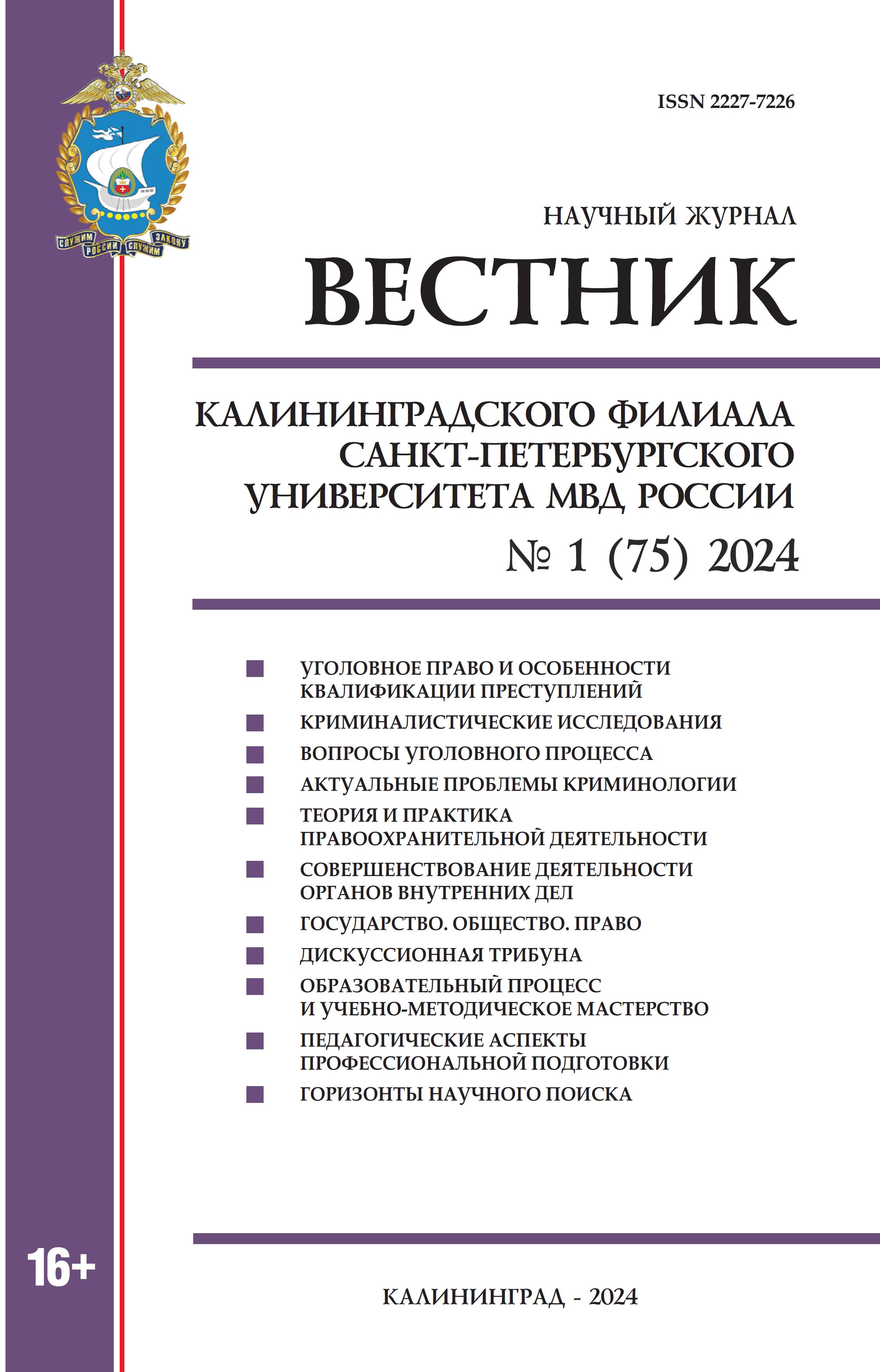Kaliningrad branch of Saint Petersburg University of the Ministry Internal Affairs of Russian Federation (Department of Criminal Law, Criminology and Criminal-Executive Law, Associate Professor of the Department)
employee
Kaliningrad, Kalinigrad, Russian Federation
Introduction. Currently, there is a large-scale introduction of norms that have administrative prejudice into the current criminal legislation. However, such a broad, but not systemic modernization, as the analysis carried out by the author of the article shows, is accompanied by the lack of a uniform approach of legal technology to innovations in this area, which results in errors in interpretation and enforcement. Methods. During the study, general scientific, statistical, logical, historical, comparative legal, systemic and structural methods were used. Results. Attention is drawn to the fact that the concept and signs of administrative prejudice are not regulated in criminal law; they are disclosed in the doctrine and recommendations of law enforcement agencies. Administrative prejudice is used by the legislator in three different forms. Firstly, by including in the design features of the crime «a person subjected to administrative punishment», secondly, «repeatedness», and thirdly, «maliciousness». An analysis of the norms of the Criminal Code of the Russian Federation revealed the inconsistency in the application of the signs of «repeatedness» and «maliciousness» in it. They, firstly, are independent signs of the main element of the crime (Articles 154, 180, 177 of the Criminal Code of the Russian Federation), and secondly, they are signs of a crime with administrative prejudice (Part 1 of Article 116.1 of the Criminal Code of the Russian Federation, etc.), in - thirdly - signs of composition with criminal-executive prejudice (Article 314 of the Criminal Code of the Russian Federation), fourthly, they are used by the legislator in the General Part of the Code (to describe general provisions related to the institution of punishment, for example in Part 5 of Article 46 of the Criminal Code of the Russian Federation and etc.). In order to improve and systematize the criminal legal mechanism regulating administrative prejudice, the author proposes to consolidate the general concept and characteristics of this legal institution within the framework of the General Part of the Criminal Code of the Russian Federation. In addition, in a number of norms of the Special Part of the Criminal Code of the Russian Federation it is proposed to replace the signs «repeated» and «malicious» with the following wording: «committed by a person subjected to administrative punishment for a similar act provided for in Art. ... Code of Administrative Offenses of the Russian Federation».
Administrative prejudice, elements of a crime, repetition, maliciousness, criminal liability, legal regulation.







